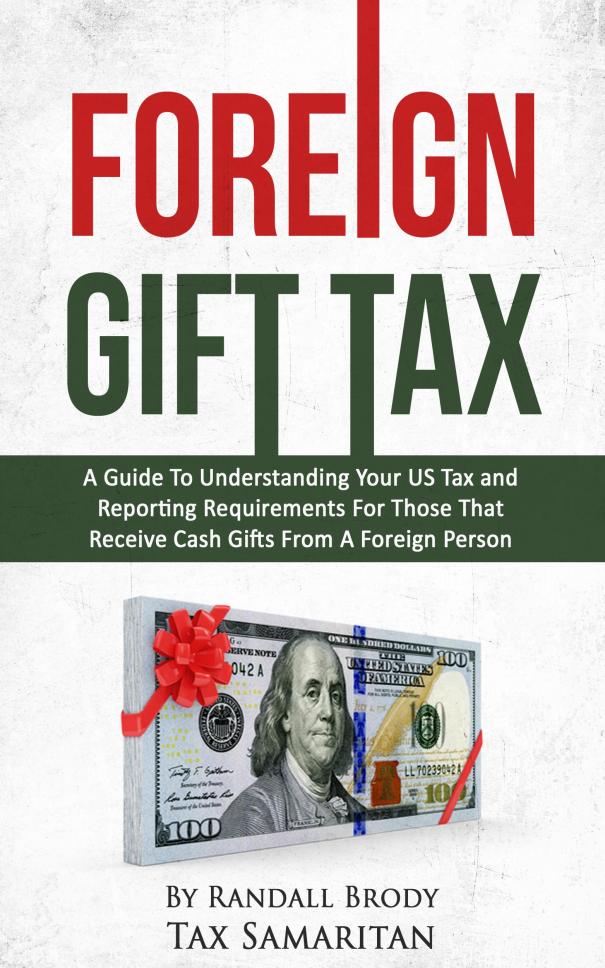Learn the key rules you need to know before you report a foreign gift
Understanding the Sorts Of International Gifts: Exactly How to Effectively Report Them
Recognizing foreign gifts is crucial for organizations passing through complicated reporting demands (report a foreign gift). These gifts can vary substantially, coming under non-monetary and monetary groups. Each kind presents special obstacles in evaluation and conformity. Organizations needs to understand the honest and legal effects entailed. Efficient monitoring and reporting demand clear guidelines and normal training. The concern continues to be: just how can companies assure they fulfill these obligations while maintaining openness and responsibility?
Interpretation and Summary of International Presents
International gifts are advantages or items obtained from international entities, which can consist of governments, individuals, or companies. These gifts might take different forms, including substantial things, solutions, or various other kinds of aid that hold value. The value of foreign presents typically exists in their prospective to influence relationships between companies, nations, or people. They can be a means of diplomacy, revealing a good reputation or promoting participation. However, the approval of such gifts increases moral and legal factors to consider, particularly relating to openness and possible conflicts of rate of interest. Receivers should navigate complex laws that regulate the reporting and acceptance of foreign presents, guaranteeing conformity with both global and domestic regulations. Understanding the definition and implications of foreign gifts is vital for individuals and companies to keep honesty and accountability in their dealings with foreign entities. This fundamental expertise sets the phase for a deeper exploration of the various kinds of foreign presents and their reporting needs.
Types of International Presents: Monetary vs. Non-Monetary
Presents from abroad can be classified right into 2 primary kinds: non-monetary and monetary. Monetary presents incorporate straight monetary payments, such as money or checks, which can substantially influence the recipient's economic standing. These gifts are usually simple to value and report, as they include clear monetary quantities.
Non-monetary gifts, on the other hand, include tangible items such as clothes, art work, or mementos, along with intangible offerings like solutions or experiences. While these presents might not have a direct monetary impact, they can hold significant sentimental or cultural worth. Valuing non-monetary gifts can be more complicated, as it typically requires examining the product's market well worth or relevance to the recipient. Understanding these two classifications is important for exact reporting, guaranteeing conformity with guidelines relating to international gifts and keeping openness in monetary ventures.
Ethical and lawful Implications of Finding Foreign Gifts
While the attraction of getting gifts from abroad might seem harmless, the legal and moral implications related to such deals can be substantial. Receivers should browse intricate regulations that control the approval of foreign gifts, as failure to do so might lead to lawful effects, including penalties or assents. Ethically, the acceptance of gifts from foreign entities can cause perceptions of favoritism or disputes of rate of interest, particularly for individuals ready of power or public count on. Such understandings can weaken the integrity of organizations and erode public confidence. Additionally, the capacity for foreign impact raises worries pertaining to national safety and security and the integrity of decision-making processes. Because of this, people should meticulously consider not just the validity of accepting international gifts yet additionally the wider ramifications on their track records and the organizations they stand for. Inevitably, thoughtful deliberation is vital to preserve both lawful conformity and moral requirements.
Reporting Demands for International Gifts

Recognizing the reporting requirements related to receiving foreign presents is vital for individuals in different markets, especially those in government and public service. These requirements are made to advertise transparency and protect against disputes of interest. Typically, recipients must report any international gifts surpassing a defined monetary limit, Clicking Here which varies by jurisdiction.
Documents is critical, as recipients have to provide information such as the worth, nature, and source of the present, along with the day it was obtained. Several organizations call for recipients to send their reports within a designated duration, frequently within one month of receipt.

Failing to abide by these reporting responsibilities can bring about serious repercussions, consisting of legal penalties and damages to one's expert online reputation. As an outcome, recognizing the certain laws relevant to one's position and jurisdiction is important for making sure compliance and preserving moral requirements in public service.

Finest Practices for Managing Foreign Gifts in Organizations
To efficiently handle international gifts within organizations, developing clear plans and procedures is crucial. Organizations must begin by specifying what constitutes an international present and determining the appropriate coverage requirements to guarantee compliance with legal responsibilities. Normal training sessions can enhance staff recognition of these plans, promoting a society of openness and persistance.
Additionally, organizations must apply a centralized radar to document all foreign presents received, including details such as the worth, function, and source. report a foreign gift. This system needs to help with regular testimonials and audits to examine compliance with well established policies

Regularly Asked Inquiries
Can Foreign Present Influence Business Decisions or Relationships?
International gifts can notably influence service choices and connections, usually producing perceived commitments or predispositions. Such influences might influence settlements, partnerships, and total company principles, potentially bring about problems of interest or reputational threats.
What Are the Penalties for Failing to Record Foreign Present?
Failing to report international gifts can result in considerable penalties, including fines, disciplinary action, or lawful effects. Noncompliance undermines openness and can damage credibilities, highlighting the relevance of sticking to reporting laws.
Exist Specific Countries With Stricter Gift Regulations?
Specific nations, like China and Saudi Arabia, enforce stricter regulations on presents, mirroring cultural standards and governmental oversight. These laws might influence international communications and demand careful consideration by people taking part in cross-border connections.
How Can Organizations Educate Worker About Foreign Present Plans?
Organizations can educate staff members visite site about foreign present plans through normal training sessions, thorough manuals, and clear communication channels. Engaging workshops and real-life situations assist reinforce understanding, guaranteeing conformity and recognition of possible moral dilemmas.
What Documents Is Needed for International Present Reporting?
Paperwork for foreign present reporting commonly consists of a comprehensive summary of the present, its worth, the contributor's information, purpose of the gift, and any relevant plans or guidelines regulating the acceptance and reporting of such gifts.
International presents are products or benefits gotten from foreign entities, which can include people, federal governments, or companies. Receivers must navigate complicated regulations that regulate the reporting and approval of international presents, visit site making certain compliance with both international and domestic legislations. Understanding the definition and implications of foreign gifts is crucial for companies and individuals to preserve honesty and accountability in their dealings with international entities. Recipients need to navigate complex guidelines that govern the acceptance of foreign gifts, as failure to do so might result in legal consequences, including permissions or penalties. Failing to report foreign presents can result in considerable fines, including penalties, disciplinary action, or legal consequences.